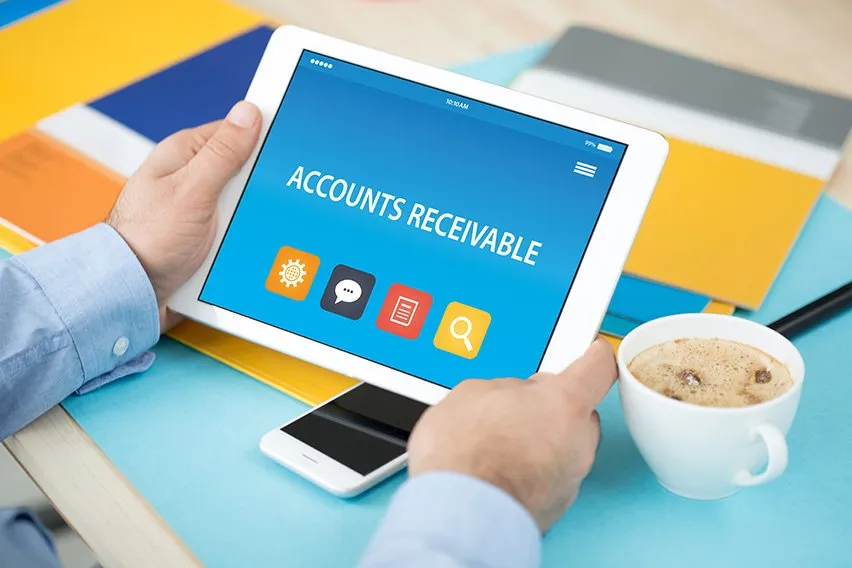What Is Invoice Financing? Definition & How Does It Work Guide

Businesses need capital.
There’s no two ways about it, a business needs funds in order to survive. There are also times where businesses will need quick access to funds. This could be if they need to pay their staff wages or their overheads. It could also be so that they can make quick moves in the market such as jumping at a short term opportunity.
One of the options available to businesses is to utilise invoice financing.
But what exactly is invoice financing? We’ll break down the definition and give you a detailed guide on how it works, and what the pros and cons are for small businesses.
Here’s What We’ll Cover:
How Does Invoice Financing Work?
Who Is Eligible for Invoice Finance?
How Do You Apply for Invoice Financing?
Is Invoice Financing Appropriate for Small Businesses?
Invoice Financing Pros and Cons
What Is Invoice Financing?
Invoice financing, also known as receivable financing or invoice trading, is a form of a loan. It is an asset-based loan that enables businesses to borrow money. This is done against invoices from their customers that are currently outstanding.
In return for the access to fast capital, a business will pay an invoice finance company a fee. This can be a set fee or sometimes it would be a percentage of the amount they have borrowed.
Invoice financing in the UK is currently unregulated. Therefore you need to be careful to understand what all of the costs, fees and charges that you may be facing.

The basic invoice financing charges are as follows:
- Service Charge: This charge would cover management, collections and administration costs. It is charged as a percentage of your company’s gross turnover. The typical rate would run between 0.75% and 2.5%.
- Discount Charge: This is similar to interest payments on a business loan. The discount charge or fee is put against the money that you drawdown. This averages out between 1% and 3%. It tends to be calculated daily following the advance of the money. So essentially, the longer your customer takes to pay, the more you will be charged.
Utilising invoice financing tends to be easier to qualify for than most business loans that are normally available. Essentially the only thing you need are outstanding invoices.
But on the other hand, any form of cash advance tends to be expensive. So while you may get the cash faster and with less hassle, you will be paying more for the privilege than you would for a normal business term loan.
How Does Invoice Financing Work?
Invoice financing companies tend to use the term invoice financing as more of an umbrella term. This is because there are normally three different types of invoice financing that businesses can take advantage of. These three types are as follows:
Traditional Invoice Financing
The traditional route of invoice financing is, very simply, an advance on your business’s outstanding invoices. It works by the invoice financing company giving your business up to 100% of your current outstanding receivables upfront. This percentage is known as an advance rate.
As your customers pay their invoices, you in turn repay the provider plus a monthly fee.
The main advantage of going down the traditional route of invoice financing is that you can get a larger advance upfront. The downside is that if your customers don’t pay their invoices on time then you will be stuck paying the monthly fees for the advance payment.
Accounts Receivable Line of Credit
The next type of invoice financing you can receive is what’s known as a line of credit. Some invoice financing companies will offer a line of credit to businesses that need continuous assistance with their cash flow.
The way it works is when you send a customer their invoice, your business can then withdraw that amount from the credit line. Each amount you withdraw will turn into a separate short term loan. You will then have to repay this plus interest or a monthly fee.
Invoice Factoring
The final type of invoice financing is invoice factoring. This involves selling your business’s outstanding accounts receivable to an invoice factoring company at a discounted rate. This is sometimes known as invoice discounting.
It works by the company advancing your business between 80% and 95% of your invoice’s value as an upfront payment. When your customers eventually end up paying the factoring company, you will receive the rest of the advance. This would be minus the previously agreed upon charges and fees.
If you pay a higher fee then you can sign up for nonrecourse factoring. This means that you will not be responsible for client invoices that are never filled.
Who Is Eligible for Invoice Finance?
There are some basic requirements and eligibility for invoice financing. They are as follows:
- You are a limited company or LLP.
- You are a business to business company, known as a B2B. So you must be dealing with other businesses, not consumers.
- You have a minimum turnover of £50,000
- You offer industry standard credit terms
- Some invoice financing companies will have a minimum amount of monthly invoices sent per month requirement.
How Do You Apply for Invoice Financing?
The application process for invoice financing is a quick and straightforward way to get fast capital for your business. Especially when compared to the many other small business financing options that are available.
Similar to small business loans, financing companies will have various requirements for your application. But the unpaid invoices that you currently have will be the most important factor.
Some companies will look at your personal or business credit and financials. Some will be less concerned with that and more concerned with the number of outstanding invoices. It’s best to do your due diligence and research what the requirements are for each specific lender.
Most companies will have an online application form that you simply need to fill out and send off for approval. Others may do their business over the phone or over email.
Is Invoice Financing Appropriate for Small Businesses?
Invoice finance is a form of alternative finance that is ideally suited for small businesses or startup businesses.
Unlike many traditional forms of financing, invoice finance doesn’t require established trading records and credit ratings. This makes it perfectly suitable for startup companies that need capital but haven’t had the longevity to build up a credit rating.

Invoice Financing Pros and Cons
There are a number of pros and cons that can be attributed to invoice financing. Some of these are as follows:
Pros of Invoice Financing
- Fast Approval: If you’re looking for a quick and easy way to get financing with minimal paperwork, then invoice financing is a solid option. The invoices themselves serve as collateral so you don’t need to put up other assets to borrow money.
- Mitigates Cash Flow Emergencies: Due to the speed and ease of use, invoice financing can be used as a quick fix when your business is having cash flow problems.
- Speed of Receival: It takes far less time than traditional loans to see the money deposited into your accounts. It can be done in as little as one business day.
Cons of Invoice Financing
- High Rates: The biggest drawback is the cost. You will pay for the convenience of quick capital.
- Need Invoices as Proof: If you’re struggling with getting customers, then invoice financing is a dead road as you need invoices as collateral.
- Doesn’t Work for B2C Businesses: Most B2C companies’ cash flow originates from a point-of-sale process. This is rather than long-term invoices. So there will be nothing to put the loan up against.
Key Takeaways
Invoice financing makes perfect sense for any B2B business that needs an easy and quick way to borrow money. This is especially true if you’re a start up business or have a bad credit rating.
The downsides are that the convenience doesn’t come cheap. You will be paying much higher rates for invoice financing than you would for traditional business loans.
Are you looking for more business advice on everything from starting a new business to new business practices?
Then check out the FreshBooks Resource Hub.
RELATED ARTICLES

 Debt Vs Equity: What’s the Difference?
Debt Vs Equity: What’s the Difference? Cash Flow Statement Indirect Method: What It Is & How to Prepare?
Cash Flow Statement Indirect Method: What It Is & How to Prepare? Hedge Accounting: Definition & Guide
Hedge Accounting: Definition & Guide Accounts Receivable Management: 6 Best Improving Tips
Accounts Receivable Management: 6 Best Improving Tips What Is an e-Receipt & How It Is Helpful to Business?
What Is an e-Receipt & How It Is Helpful to Business? Invoice Discounting vs Factoring: What’s the Difference?
Invoice Discounting vs Factoring: What’s the Difference?